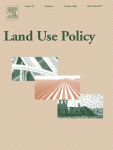Improving Tenure Security for the Rural Poor. Rwanda – Country Case Study
Most of the world’s poor work in the “informal economy” – outside of recognized and enforceable rules.
Thus, even though most have assets of some kind, they have no way to document their possessions
because they lack formal access to legally recognized tools such as deeds, contracts and permits.
The Commission on Legal Empowerment of the Poor (CLEP) is the first global anti-poverty initiative
focusing on the link between exclusion, poverty and law, looking for practical solutions to the challenges
Improving Tenure Security for the Rural Poor Rwanda Country Case Study
Has 3 main chapters: land tenure security and poverty reduction; access to land problem in Rwanda; a background (land-tenure systems, land scarcity and environmental degradation, land distribution); issues of tenure security in Rwanda (access to land by poor people, formalisation, practicalities of implementation).
Equity in informal land delivery: Insights from Enugu, Nigeria
Mounting exclusionary forces have made the task of achieving equity in urban land delivery more elusive than it has ever been. Statistics show that, in practice, most land for urban development (especially that occupied by the poor) is supplied outside state regulatory frameworks and there is overwhelming evidence of the importance of secure access to land and housing to the livelihood strategies of poor urban households.
The course of China's rural reform [In Chinese]
革命胜利后的二十几年,激进 主义一直占上风,过早废除土地私 有,土地疏远农民,到“文化大革 命”结束时,中国经济已处于相当 困难的境地,引发农业危机。人口 增长,食品短缺。人均粮食始终只 有300多公斤。8亿农民中,贫困人 口占2 . 5亿。整个国家粮食不能自 给,要大量进口
The course of China's rural reform
For more than 20 years after the victory of the Chinese Revolution, radicalism was ascendant and private ownership of land was illegal. The peasantry became estranged from the land, so that when the Cultural Revolution ended, China’s economy had been placed in difficulty and an agricultural crisis induced. The population had grown, and food was in short supply. Per capita grain production never averaged much above 300 kilograms. Of the 800 million peasants, 250 million were impoverished. The nation as a whole could not achieve self-sufficiency in grain and required massive imports.
Agrarian reform in the context of food sovereignty, the right to food and cultural diversity: “land, territory and dignity”
Through an analysis of the right to adequate food and the right to land, this civil society report, argued that achieving food sovereignty requires agrarian reform.
ANNEX: Land and agricultural land management in Vietnam
ABSTRACTED FROM THE BOOK INTRODUCTION: ... provides some pieces of information of land management policies, especially of land use rights, since the early 1980s. This monograph ... presents important background information in order to learn under which conditions Vietnam’s agricultural development has occurred.
State Forest Enterprise Reform in Vietnam: Review of Policy and Implementation Framework for Decree 200
As an important step forward, the Government of Vietnam issued Decree 200 in December 2004 to accelerate the reform of state forest enterprises. The government aims to develop provincial SFE reform plans by mid-2005 and to have them implemented over two to three years. However, the Government also recognizes that several implementation and policy issues remain. This review examines the overall policy framework of SFE reform in light of the promulgation of new regulations and existing implementation capacity.
Problématique du Régime Foncier au Rwanda: Contexte et Perspectives, Relations avec l’Habitat Regroupé
Le retour des réfugiés de 1959, la politique de regroupement de l'habitat adoptée en 1996, la disette qui frappe le pays depuis 1999, la faible pluviosité qui prévaut dans le pays depuis deux ans après le phénomène el nino, conduisent à une prise de conscience nouvelle de ce qu'il faut appeler la question foncière, de ses relations avec la production agricole dans le cadre de l'option de sécurité alimentaire.
Contending Views and Conflicts over Land in the Red River Delta since Decollectivisation
Contending Views and Conflicts over Land in the Red River Delta since Decollectivization is an anthropological study in which I offer a new approach exploring the viewpoints of various parties to analyze their attitudes, relations and conflicts over land in Vietnam's dynamic Red River delta after decollectivization. I also evaluate how and in what ways industrialization and modernization, as well as the effects of urbanization, marketization, and to a lesser extent globalization, have affected Red River Delta villagers' views and relations towards agricultural land.
Study on Land Allocation to Individual Households in Rural Areas of Lao PDR
The legal framework for land use planning and land allocation (LUP/LA) in Lao PDR has been analysed based on the relevant laws (Land Law, Forest Law, Agricultural Law etc.). A national LUP/LA program under the overall responsibility of the Ministry of Agriculture and Forestry has been created in 1996. Until 2003, district agricultural and forestry staff have conducted LUP/LA activities in a total of 5400 villages in all provinces of Lao PDR. It is estimated that approximately 300.000 Temporary Land Use Certificates have been issued as a result of LUP/LA.








